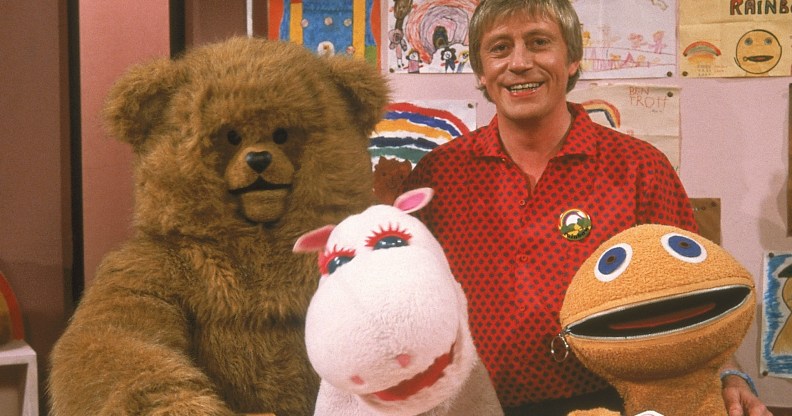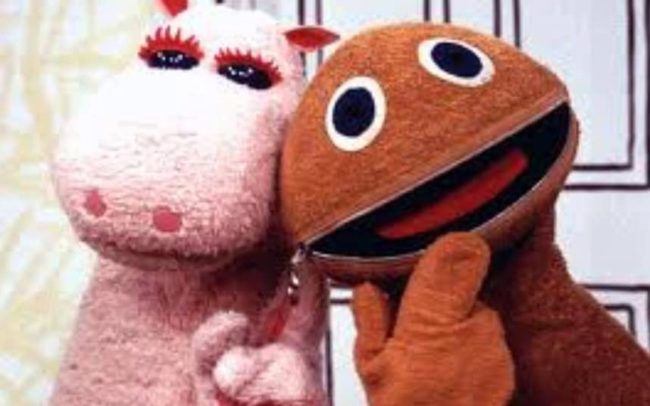Was George from Rainbow gay?

Beloved children’s TV presenter Geoffrey Hayes has passed away aged 76.
Best-known for presenting the popular children’s TV show Rainbow during the 1970s and ’80s, Geoffrey Hayes was a staple of British TV for an entire generation.
Born in Stockport in 1942, he first came to prominence starring in BBC One’s Z Cars as recurring character Detective Constable Scatliff. However, it wasn’t until 1974 that Hayes landed his big break, taking over from David Cook as the presenter of Rainbow.
Conceived as a British answer to the popular American series Sesame Street, the fun, colourful show was anchored around iconic puppets Zippy, Bungle and – of course – George.

George (left) enjoys a quiet moment with fellow puppet Zippy. (ITV)
News of Geoffrey Hayes’ passing has brought back a lot of memories for those loaded with the nostalgia of watching Rainbow during their childhood. But for some, the biggest question surrounds George’s sexuality.
Was George from Rainbow gay?
There is a long-standing debate about whether George – a light pink hippo with a gentle, sensitive manner – was in fact a gay character. Much like the discussion surrounding Bert and Ernie’s relationship in Sesame Street, it’s an area which provokes strong opinions. So what lies behind the fascination with George’s sexuality?
For one thing, it’s difficult to avoid the idea that the show’s creators intentionally presented George as somewhat gender-fluid. His long, beautiful eyelashes are his most distinctive feature and the colour pink has been associated with the LGBT+ community from as far back as the 1950s.
The show also regularly delighted in double-entendres which, like a lot of children’s shows, would be lost on their younger viewers but understood by an older audience. Taken on its own, this doesn’t amount to much, but it does suggest the show’s creators were conscious of more adult issues that the programme may have been subtly hinting towards.
As PinkNews have reported, one London pastor is convinced that the show itself was gay propaganda. Although, it’s worth noting, the rainbow symbol itself has only been aligned with the LGBT community since the late ’70s.

